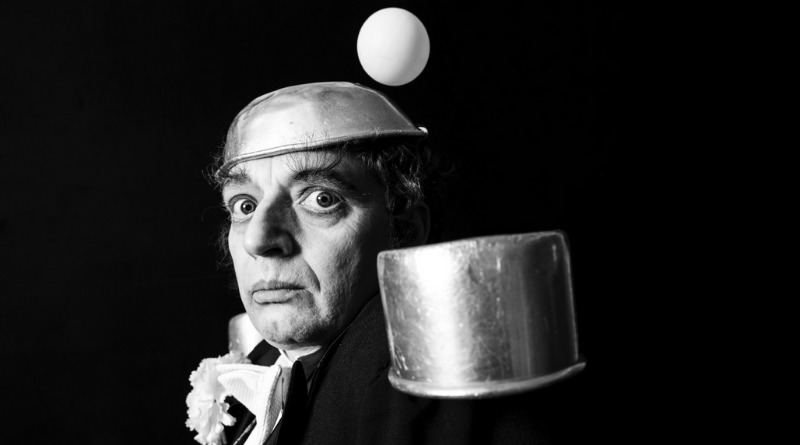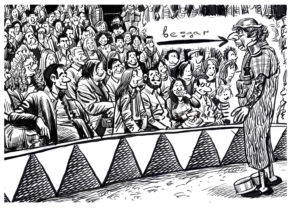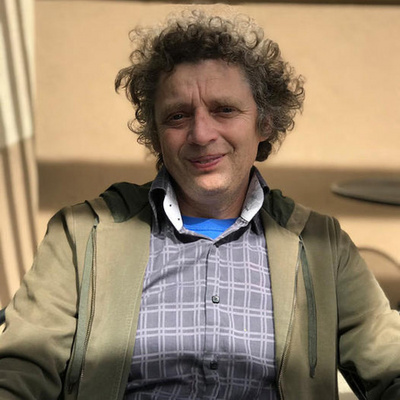How to Clear the Obstacles to Success?

In this article, let’s examine a little more deeply that quality which is so similar to fear, but —more precisely— is the dread of being an unsuccessful person. We will also discover that success is an ephemeral, fickle thing, and learn what we need to draw on when that happens.
Success is illusory
When I was studying to be a clown in Moscow, we were trained for success and we were even spooked: ‘You might graduate from here as stars! Or you might be nothing at all!’
Our entire philosophy of life is orientated around success. Almost every advertisement plays on your personal happiness. We are often intimidated by our television screens or from billboards. If we don’t buy this lamp, then the way we are living our lives is wrong. If we do not watch this film, then we will be taken for fools. If we do not buy this t-shirt, then we will be unfashionable, and so on.
People are afraid of being losers and, as a result, they become losers, living someone else’s life— one that is imposed on them.
Everyone aims for success all of the time, they are competing for who is the coolest, the funniest. I even know of one case in which a man died at an international circus festival in Monte-Carlo after he was awarded the silver clowning medal instead of a gold one. His heart could not handle it; he was certain that he would win gold. His act was without a doubt up to gold standard, and it was unique. After the results of the competition were announced, he returned to the hotel and died of a broken heart. What happens in our lives very often does not happen the way we perceive it.
What is success, though? How long does it last?
I know a lot of troubled businessmen, who back in their youth, instead of using their talent, their thing, which would really have transformed them and refined them as people, chased illusory success. As a result, those people lost their faith in their own talent and they did not earn any money either.
Success is a fickle thing. Today it’s there, tomorrow it’s not. Even one and the same shows can be received differently in different cities and countries. It does not matter what country you are in; you can be successful in one and the same city one day, but the next day the public may not laugh or react as they did the day before. Your act has suddenly been put on immediately after the trapeze artists, even though before it was listed in the program as following the jugglers, and the reaction of the crowd is not so good. Where, then, is the success?
A technician happens to miss his cue, or a baby in the audience starts to cry at an inopportune moment – where is the success? A younger and more energetic performer appears and all the success transfers to them, and even though you are still standing on stage, nobody is talking about you anymore; their attention is all on the young performer.
Or you move on with a touring group from Spain, where the public reacts so well that in their laughter, whistles, and applause, they drown out a huge orchestra. You go to Holland, where the reaction of the audience is so quiet that you can hear your own breath. Naturally, you think you can’t win the audience, that the public does not love you. In fact, the Dutch really like you as well; it’s just that they are a little different, a little more reserved.
You cannot lean on success: sooner or later, you will fail and fall into depression.
What actually can you lean on in this case?
I would suggest changing the goal: instead of chasing success, gift your performance to the public.
.
Gift your performance to the public
Sometimes artistes are unhappy with the public. They complain, ‘In England and Germany, the public was very good. But here, not so much…’ Or, ‘Yesterday the public was amazing, but today…’
We are unable to comprehend that our art lives in the present moment when we are on stage, and that there is no yesterday for our art. Despite the fact that I perform my show more than 300 times a year, for me it is all one and the same show. My clown does not even suspect that there was such a thing as yesterday. For them, life is in the now, in these eight minutes they perform their clowning act.
In chasing success, we run away from the here and now.
My friend, a famous circus acrobat, once told me: ‘In Russian, ‘Adam’ sounds like the verb ‘TO GIVE..’
In order to experience the state of the Invisible Clown, you have to give. Adam wants to give; he does not want to TAKE. Can you imagine if it was the other way around, if the first human being on Earth had been called Take?

It is possible that if this was the case, we would not be here.
In our case all we have to do is to give, to gift our performance to the public-– five minutes or an hour and a half, it doesn’t matter.
When we crave success, we want to take the audience’s applause, their laughter and love from them. This actually is not very fair since we receive our wages, so why would we need to beg?
When we give, we share what we have now, and this is completely sufficient. Our motivation is so pure and positive that we no longer care whether the public will accept our gift or not, and if they are going to applaud or laugh.
When we go to a birthday party and we offer the host on their name day a gift that has been carefully wrapped and decorated with bows and ribbons, we give that gift out of sincerity, and we hope they like it.
The most important thing is our intention, our motivation.
.
Serve
It seems to me that here we are approaching the global topic of service: an attitude that helps us to change the world for the better.
The arrow has changed direction. Now it is pointing at the public. Up to this point, the arrow has been pointing at the performer, at the ‘beggar.’

This relates to stage performances, but the same thing applies to everyday life.
When you think about how you appear when you are performing, it becomes all about ‘you,’ and in this situation, you are full of a variety of fears.
When you see what it is the public needs, that’s when you are ‘serving’ them, when you are changing the world for the better.
Then a conscious person– or anyone who is striving to be conscious– is able to ‘serve’ and ‘to give’ like Adam. Otherwise the arrow only works in one direction, towards the ‘beggar.’
Everyone around us is serving one another, consciously or subconsciously. Take a cup, for example: it’s serving us, we drink tea from it. Someone made this cup, and that means they served us as well. Everything we see around us, whether an object or a phenomenon, is all created to be of our benefit, and everything serves each of us, even if we do not understand this. The self-same thing is true of our public performances. In order to eradicate stage fright, you have to replace the desire to please your audience with a striving to serve them.
The outstanding Persian Sufi-poet Jalal ad-Din Rumi once wrote, ‘How long are you going to seek a buyer for your words?’ (1)
To me, this wonderful quote means, how long am I going to perform so that people praise me, and when am I going to perform for the public, oblivious of their appraisal and their opinions, al which are just products of my imagination?
In another verse, Rumi wrote: ‘Once I wanted buyers for my words,Now I want someone to take me for my words.’ (2)
This unbelievable quote suggests to me that we have to become our words. We have to become our actions. We have to become performers, and not beggars for success.
.
(1) Rumi D. Treasures of Recollection. – M.: Realityweb, 2010. (2) Ibid. Main image: Photo by Tobias Sutter.

Mikhail (Misha) Usov is the author of “The Invisible Clown: How to Not Be Afraid of Being Yourself.” In his first book published outside Russia, Misha reveals the acting, communications, and public speaking discoveries that led to his 36-year success as an international performer on five continents and creative artist for Cirque du Soleil. The Invisible Clown is essential reading for any performing artist, ready to shed the patterns that cause creative blocks, stage fright, inconsistent performances, waning artistic energy, and the fear of being yourself.
.
Editor's Note: At StageLync, an international platform for the performing arts, we celebrate the diversity of our writers' backgrounds. We recognize and support their choice to use either American or British English in their articles, respecting their individual preferences and origins. This policy allows us to embrace a wide range of linguistic expressions, enriching our content and reflecting the global nature of our community.
🎧 Join us on the StageLync Podcast for inspiring stories from the world of performing arts! Tune in to hear from the creative minds who bring magic to life, both onstage and behind the scenes. 🎙️ 👉 Listen now!
